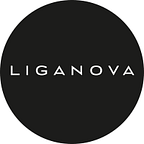#3 Green Retail: Sustainability in Retail Design
Consumer demand for retailers to factor in sustainability when designing their store interiors is noticeably growing. The modern conscious consumer is looking not only to consume more responsibly sourced and fabricated products but to shop them in an environment which thrives of its re-thought and redesigned concept.
Notions of reducing, reusing, upcycling, recycling and re-thinking can already be discovered in a lot of brand’s commitments to enable more sustainable retail design. We curated yet another collection of some brand’s efforts undertaken towards more circularity in retail while coming up with the most beautiful, sleek solutions. Catch some inspiration by reviewing how these high end and luxury retailers elevate their concept stores to the next level when it comes to sustainability in retail design, always #thinkinginalternatives.
Bvlgari
Bvlgari’s Shanghai store façade’s Art Deco-like appearance is attained from recycled champagne and beer bottles to imitate China’s most prized stone, jade. The medium was chosen to reflect the brand’s and its architectural studio MVRDV’s goal of executing forthcoming store designs using a 100 percent circular materials. It is backlit, which allows for a textural, translucent and captivating finish. Plus, the energy footprint was optimized to ensure it takes less than half the power a comparable installation would.
Ganni
Ganni incorporates principles of circularity in its rare concept stores: From Williamsburg, NY to London, the brand’s flagship stores are built to resemble a Danish home, blending different textures and bright colors. The furniture incorporates drawers that are made from a hundred percent recycled and recyclable plastic waste while customers can return no-longer worn, unwanted clothing and shoes to the store for the brand to recycle back into new garments. Artworks, ceramics and rugs made from upcycled fabric used for former Ganni collections top the space off and distribute the ‘Scandi 2.0’ vibes which the brand is known for.
Aesop
Aesop has been a pioneer when it comes to re-thinking store design the more circular way. The brand keeps stunning with their always individual concepts, suited to the respective location and environment the store is set in. Each of their stores is unique, as the brand immerses itself into the local culture and history with the intention to ‘weave themselves into the fabric of the place’ rather than to impose upon it. Further, the elements inserted into their stores try to organically fit into the chosen space. Aesop’s store at Flinders Lane in Melbourne, for example, reflects the constant cycles of regeneration found in nature and its urban environment. Its interior features 3000 recycled cardboard boxes, the same used for shipping Aesop’s products, that mount into their counters and adjustable shelving walls.
Voo Store
Act local: For the redesign of its Kreuzberg concept store, Berlin independent retailer Voo joined forces with regional small businesses, designers and artists. The renovation of the former locksmith warehouse marks the multi-brand store’s 10th anniversary. The minimalist space is a gallery of discovery, showcasing a constantly evolving selection of local and international designers and artists. The re-thought interior shows many beautiful details in furniture and architecture as curated by the local creatives — urban archaeology at its best.
Camper
Praised for its resourceful reuse of archived shop-fittings and rightly so: Only four basic elements — perforated metal profiles, corner plates, nuts and bolts and reclaimed wood from old furniture — are incorporated at Oficina Penadés bespoke store for the single-brand footwear store of Camper in Málaga. Penadés visited the brand’s warehouse in Mallorca, which momentarily serves more as a storage space for winnowed Camper shops, and decided to set up an entire shop made of refurbished and updated retail furniture. This hands-on, inventive approach of repurposing pre-fabricated elements makes for a mega flexible, future-proof design.
The Fashion Door
Located within the ‘certified green building supermall’ in Hong Kong’s huge new art and design district, Victoria Dockside, is The Fashion Door. The brand and its interior design studio dwelled on the idea of founding a store entirely made of materials that stem from southern China’s largest recycling facilities. They reflect that ‘the concept of recycling responds to the circle of fashion trends — fashion constantly being inspired by elements [of] the past’. Beyond using recycled waste from the Guangzhou area, the interior’s concept is hinting at rising sea levels through storytelling and conjuring the future by using elements of the past.
Retail’s way to grow
We love seeing these many, big brands catching the drift, embracing the creative moment that comes with re-thinking retail and interior concepts and incorporating more sustainable solutions. Nonetheless, much more can and must be done to turn retail for the better. Brands need to understand that they can catapult themselves to the top just by trailblazing worthwhile, green ideas and that now is the moment to act.
***
